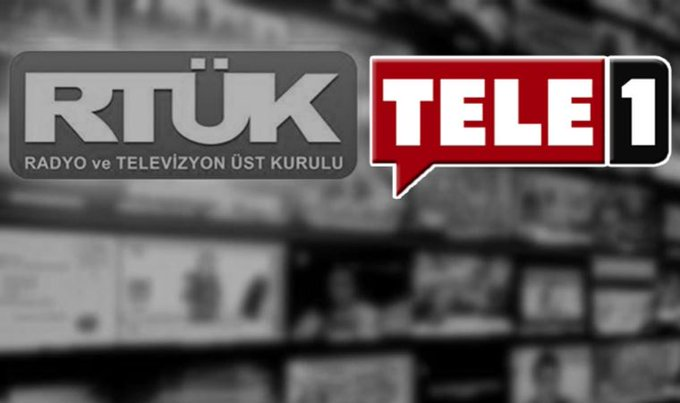The enforcement of a seven-day blackout on Turkish broadcaster TELE1, which was ordered by Turkey’s Radio and Television Supreme Council (RTÜK) over its editor-in-chief’s remarks on air about a terrorist leader, has started, Turkish media reported over the weekend.
TELE1, which was initially scheduled to be blacked out between July 18 and 25, filed a lawsuit with the Ankara 4th Administrative Court, requesting an injunction. The court unanimously suspended enforcement of the blackout.
However, RTÜK then objected to the decision. A higher court upheld the appeal on Aug. 1 and removed the injunction.
The enforcement of the blackout, which will be in effect from Aug. 6 to 12, started at midnight on Saturday.
The station is being punished due to the televised remarks of journalist Merdan Yanardağ, the editor-in-chief of TELE1, regarding Abdullah Öcalan, the imprisoned leader of the outlawed Kurdistan Workers’ Party (PKK).
Yanardağ, who was arrested on June 27, faces a prison sentence ranging from one year, six months to 10 years, six months, on charges of “praising crime and a criminal” as well as “disseminating propaganda for a terrorist organization.”
TELE1 said in a press statement that it is targeted by the government due to its “fearless” journalism and standing up for the truth, adding that the blackout will be remembered as a “dark stain” on the history of the press.
“In the current conditions of our country, we are aware that practicing free and independent journalism comes with heavy consequences. … The ultimate goal of those who have shut down TELE1’s broadcast for seven days is to establish a completely pro-government media system where criticism of the authorities is not allowed,” the channel said.
The development attracted condemnation from the Press Council, one of the leading journalism organizations in Turkey, which said the blackout exceeds RTÜK’s authority and is “unlawful.”
“RTÜK not only penalized TELE1 but also deprived the public of their right to access information and learn the truth. The true recipients of the punishment are the viewers who encounter a black screen when they turn on their television,” the organization said.
The Press Council further stated that RTÜK has lost its constitutional position as an “autonomous and impartial public legal entity” and has become a “tool of the government” wielded over critical channels.
The pro-Kurdish People’s Democratic Party (HDP) said in a tweet that the blackout is an attempt to suppress discussions about the “isolation” of Öcalan.
The “isolation” of Öcalan, who has been jailed in a high-security prison on İmralı Island in the Sea of Marmara since 1999, refers to his inability to speak with his lawyers for years.
During his TV program, Yanardağ claimed there was no legal basis for the “isolation” imposed on the PKK leader.
The party said they condemned “this severe action against TELE1” and demanded an immediate reversal of the decision.
Gazeteci Merdan Yanardağ’ın tutuklanmasının ardından TELE 1 ekranları da 7 gün süreyle karartıldı. İktidar hem tarihte eşi benzeri görülmemiş bir tecrit uyguluyor hem de tecridin konuşulmasını engellemeye çalışıyor. Kendisi gibi düşünmeyeni, konuşmayanı susturmaya yelteniyor.…
— HDP (@HDPgenelmerkezi) August 6, 2023
It is common for journalists in Turkey, which has a poor record on freedom of the press, to face threats, physical attacks and legal harassment due to their work.
Rights groups routinely accuse the Turkish government of trying to keep the press under control by imprisoning journalists, eliminating media outlets, overseeing the purchase of media brands by pro-government conglomerates and using regulatory authorities to exert financial pressure, especially since President Recep Tayyip Erdoğan survived a failed coup in July 2016.
Turkey is ranked 165th in the Reporters Without Borders (RSF) 2023 World Press Freedom Index, among 180 countries, not far from North Korea, which occupies the bottom of the list.

